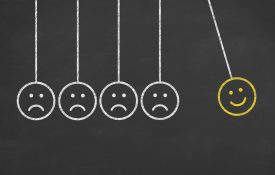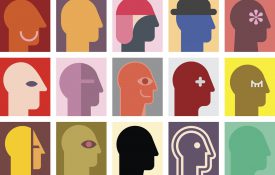-

Investigating Emotional Spillover in the Brain
Scientists at the University of Wisconsin–Madison are discovering what happens in the brain when emotions from one event carry over to the next.
-

New Research From Psychological Science
A sample of new articles exploring implicit sense of agency over somatosensory events and the motivational effects of contingent and noncontingent rewards.
-
The Dangers Of Hidden Jargon In Communicating Science
NPR: One of the challenges that can arise in communicating science and other forms of scholarship to non-experts is the jargon involved. How many people can confidently explain the meaning of broadband asymmetric acoustic transmission, mural lymphatic endothelial cells, or graded incoherence (to borrow some phrases from recent journal publications)? But the most dangerous kind of jargon isn't the kind we notice. It's the kind that slips by. When technical definitions hide behind words we use in everyday speech, the opportunities for miscommunication abound. The expert thinks she has been clear; the recipient thinks he has understood. And yet, both could be wrong.
-
Why Adolescence Lasts Forever
The Atlantic: In August of 2001, Mitch Prinstein, a psychology professor who had just been hired at Yale University, offered his first class at the school: a course he had developed about popularity among children and adolescents. When Prinstein arrived at the small classroom the school had assigned him in the center of campus, he was greeted with a crowd outside the lecture hall—one so large that he figured there’d been a fire-drill-mandated building evacuation. It took him a moment to realize that there was no fire; the students were all there for his class.
-
Eureka? Yes, Eureka!
The New York Times: In the commencement address he delivered at Harvard last month, Mark Zuckerberg, the chief executive of Facebook, warned the graduating students not to trust the story of innovation that Hollywood promotes — namely, “the idea of a single eureka moment” in which a lone thinker has a groundbreaking epiphany. He characterized this idea as “a dangerous lie” that discourages real creativity. “You know what else movies get wrong about innovation?” Mr. Zuckerberg added. “No one writes math formulas on glass. That’s not a thing.” Actually, that is a thing, although sometimes people carve their formulas in stone if there isn’t any glass to write on.
-

Science Shows How Faces Guide, and Reflect, Our Social Lives
A special issue of Current Directions in Psychological Science illuminates the myriad ways in which face perception infuses our thinking and behavior.

